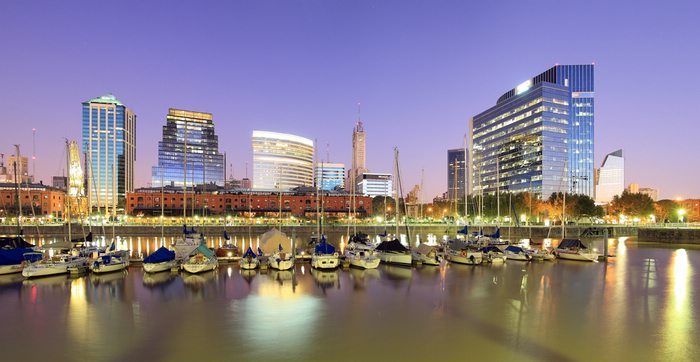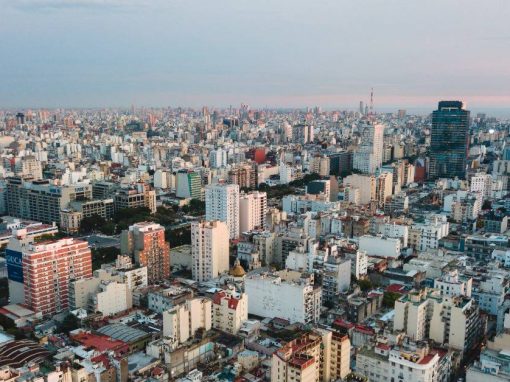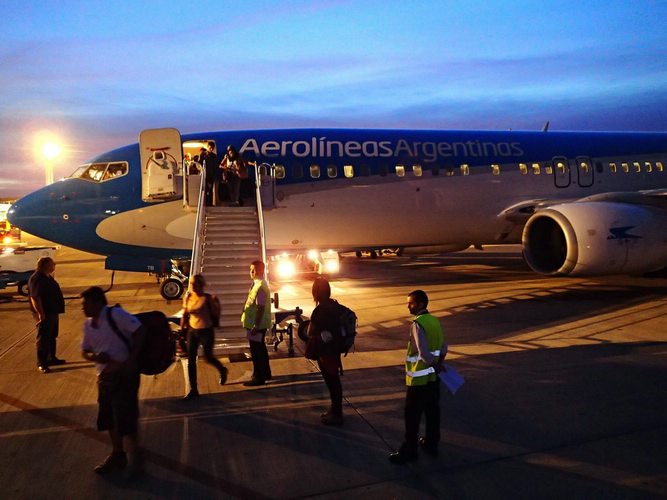When planning your next adventure in the beautiful country of Argentina, you don’t want to miss an opportunity to explore the enchanting and eclectic city of Buenos Aires. Buenos Aires is not only the country’s political capital, but is also a large province that serves as the gateway to many of Argentina’s charming and exotic attractions. Adding to the appeal of the city, Buenos Aires has a very fascinating history, one that includes the British invasion during the early 19th century. From exquisite architecture to freshwater isles, there are many sights that should make your “must-see” list, and one of the best ways to explore the city and the surrounding attractions is with the El Tigre Excursion which reveals the lingering effect of the British invasion of the Rio de la Plata region during the Napoleonic Wars. This tour is available for a half-day or full day, which includes visits to some of the region’s main attractions, as well as an adventure to the lower Parana Delta. Curious for more details? Read on!
El Tigre Excursion of Buenos Aires
Buenos Aires: Gateway to Argentine charm
Tour highlights: Culture, nature, and everything in between
Plan your next adventure to Argentina
Buenos Aires: Gateway to Argentine charm
One of the most vibrant cityscapes in Argentina, the city of Buenos Aires is a destination overflowing with character. Visitors will notice immediately the strong European influence on the city. With Baroque and Neoclassical style architecture and most of the porteños, or the inhabitants of Buenos Aires, coming from Italian, German, or Spanish descent, it is evident why the city of Buenos Aires has received the nickname “Paris of South America.” Moreover, Buenos Aires and the Rio de la Plata region has a rich colonial history, which makes it a fascinating destination for anyone seeking to know more about Argentine culture.
Tour highlights: Culture, nature, and everything in between
River Plate Stadium
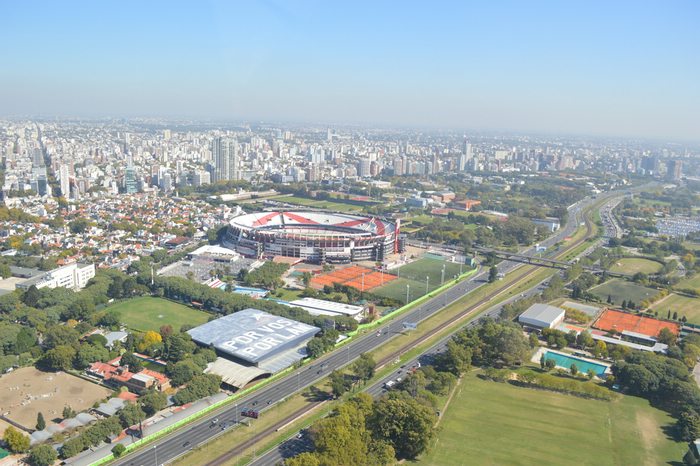 The River Plate Stadium in Buenos Aires is the home of Argentina’s most successful national soccer team, Club Atletico River Plate.
The River Plate Stadium in Buenos Aires is the home of Argentina’s most successful national soccer team, Club Atletico River Plate.
Photo by Terra Hall
The first stop of the tour is in the Nuñez district of Buenos Aires at the sight of the 1978 FIFA World Cup games, the River Plate Stadium. The stadium is also called Estadio Monumental Antonio Vespucio Liberti, in commemoration of one of the most influential presidents of Club Atletico River Plate, Argentina’s most successful national soccer team. It was built in 1935 and has undergone a number of renovations over the years. Today, River Plate Stadium is Argentina’s largest and most popular stadium. A wide array of sporting and entertainment events are hosted there, from tennis, basketball, and soccer matches to benefit concerts and shows by popular music artists/groups like, Madonna, Paul McCartney, and the Red Hot Chili Peppers.
Presidential Residence Olivos
Located in the suburbs of Buenos Aires’ metropolitan area about 11 mi (17 km) south of downtown, Olivos is mainly an upper class residential area which is most known for the official Presidential Residence, also referred to as Quinta de Olivos. The residence is built on a beautiful estate which was originally privately owned by the first founders of the city of Buenos Aires, but later was bequeathed to the Argentine Government to be used for the Presidential Residence. The estate’s manor house was completed in 1854 and is constructed in the Neoclassical and Baroque style, however, the 35-hectare estate itself has undergone numerous construction projects to include a tennis court, a miniature golf course, an amphitheater, and greenhouse.
San Isidro Cathedral
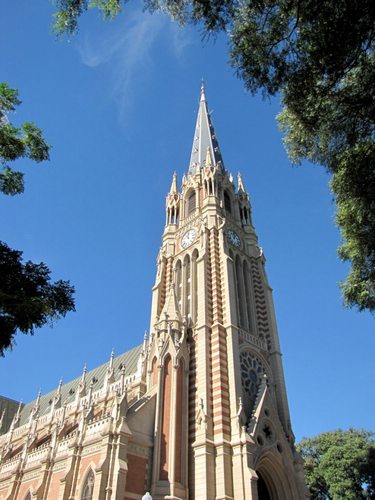 The San Isidro Cathedral is located in one of the most affluent municipalities in Argentina about 13 miles north of downtown Buenos Aires.
The San Isidro Cathedral is located in one of the most affluent municipalities in Argentina about 13 miles north of downtown Buenos Aires.
Photo by Barbara Dieu/Flickr
The San Isidro Cathedral was built in the 19th century on the original site of the 18th century chapel constructed at the time of the founding of San Isidro City, which is located in the Buenos Aires Province about 13 mi (20 km) north of downtown. The city itself is considered one of the most affluent municipalities in Argentina, and the cathedral is a gleaming reflection of the degree of affluence, with gargantuan buttresses designed in the neo-gothic style. As of 2007, project plans have been approved to restore the cathedral to its original beauty.
Lower Parana Delta and Tigre Market
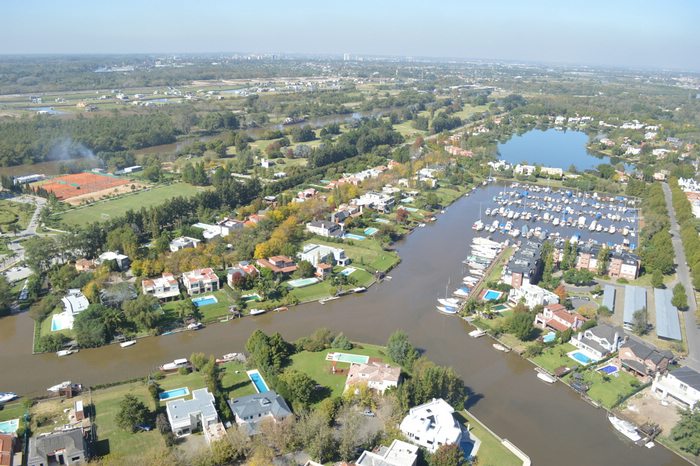 The lower Parana Delta is a winding network of waterways which serve as the area’s main transportation routes.
The lower Parana Delta is a winding network of waterways which serve as the area’s main transportation routes.
Photo by Terra Hall
The small town of Tigre is located about 20 mi (32 km) north of Buenos Aires in the lower Parana Delta on an island surrounded by freshwater wetlands. With a strong British influence, Tigre has beautiful colonial mansions situated on the narrow river banks and winding waterways that serve as the city’s main transportation routes. In recent years, Tigre has flourished into a popular destination for tourists and porteños to visit and escape the urban jungle and enjoy the natural beauty of the Parana wetlands. One popular attraction is the Tigre Market which is a great place to sample fresh jungle fruits and explore authentic artisan crafts.
Villa Victoria Ocampo
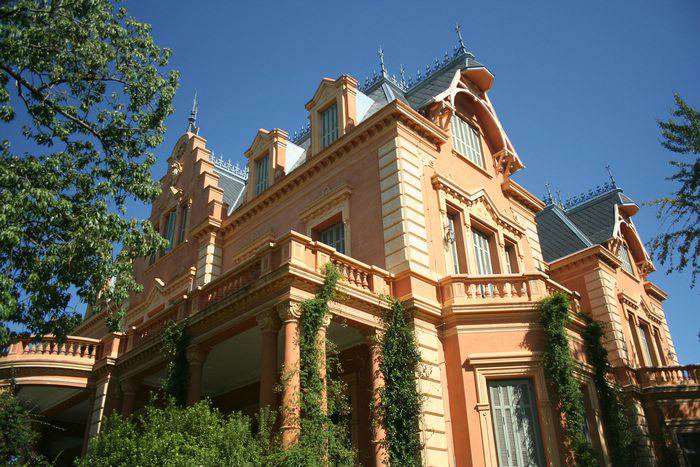 The residence of famous writer and intellectual Victoria Ocampo, also called Villa Victoria Ocampo, is now a cultural center for the public maintained by UNESCO.
The residence of famous writer and intellectual Victoria Ocampo, also called Villa Victoria Ocampo, is now a cultural center for the public maintained by UNESCO.
Photo by Meghan Hess/Flickr
The full-day El Tigre Excursion includes a tour and lunch at the exquisite mansion of the famous writer and mastermind behind the popular 20th century Sur magazine, Victoria Ocampo. The residence is located about 19 mi (30 km) north of downtown Buenos Aires in the city of San Isidro. Originally built by Ocampo’s father in 1891, the mansion is distinguished architecturally by British and French design, boasting 118,403 square feet (11,000 square meters) of lush garden perimeter, a library of nearly 12,000 books, photographs and writings of the famous icon, as well as an extensive collection of art pieces and furniture. Villa Victoria Ocampo has been owned by UNESCO since 1973 and has since been designated as a cultural center for the public.
Plan your next adventure to Argentina
Ready for your next adventure? Contact us today to speak with an experienced travel advisor and add El Tigre Excursion of Buenos Aires to you Argentina itinerary!

Latin America for Less is a group of travel experts who live, work, eat, and breathe all things South America. Their inspiration stems from a deep appreciation for the beauty and diversity that make this continent so special.

